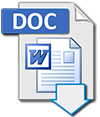Designing a Transglobal Leadership Model to Optimize Holistic Learning Within The Independent Learning Framework
DOI:
https://doi.org/10.29240/jsmp.v9i1.13568Keywords:
Transglobal transformative leadership, Model development, Holistic learning, Merdeka belajar, Collective behaviorsAbstract
The holistic learning strategy within the Merdeka Curriculum has not yet been fully effective, primarily due to the limited role of school leadership in fostering a collaborative and reflective learning ecosystem. Responding to this gap, this study proposes a Transglobal Leadership Model designed to support holistic learning aligned with the principles of Merdeka Belajar. The model integrates six core leadership intelligences (cognitive, emotional, moral, business, cultural, and global) positioning school principals as adaptive agents capable of navigating educational challenges in the VUCA (Volatility, Uncertainty, Complexity, and Ambiguity) era. Conducted in public high schools in Tomohon City, this qualitative study employed in-depth interviews, observations, and document analysis to examine how school leaders enact holistic learning values in practice. The findings reveal that collective behaviors namely awareness, commitment, and openness, are key drivers in optimizing holistic learning processes. These results broaden the theoretical landscape of educational leadership and offer strategic insights for strengthening principals’ leadership capacity within the Merdeka Belajar framework. However, the study is limited by its narrow geographical scope and exclusive reliance on qualitative methods, which do not statistically validate the relationships between variables. Future research should employ mixed-methods approaches to test the model’s validity and expand its applicability across diverse educational settings. The proposed model offers a leadership framework that is both globally adaptive and locally grounded, aligning with Indonesia’s educational transformation imperatives.
Downloads
References
Afni, Z., Suryadi, S., Azis, Y. M. A., & Purwanto, B. H. (2019). The role of transglobal leadership for forest and land fire control in Riau province. International Journal of Innovation, Creativity and Change, 9(5), 364–387.
AlAfnan, M. A. (2025). Enhancing educational outcomes using AlAfnan taxonomy: integrating cognitive, affective, and psychomotor domains. Int J Eval & Res Educ, 14(3), 2419–2437. https://doi.org/10.11591/ijere.v14i3.33147
Downloads
Published
How to Cite
Issue
Section
Citation Check
License
Copyright (c) 2025 Gilly Marlya Tiwow, I Kadek Satria Arsana, Herman Philips Dolonseda

This work is licensed under a Creative Commons Attribution-NonCommercial-ShareAlike 4.0 International License.


















